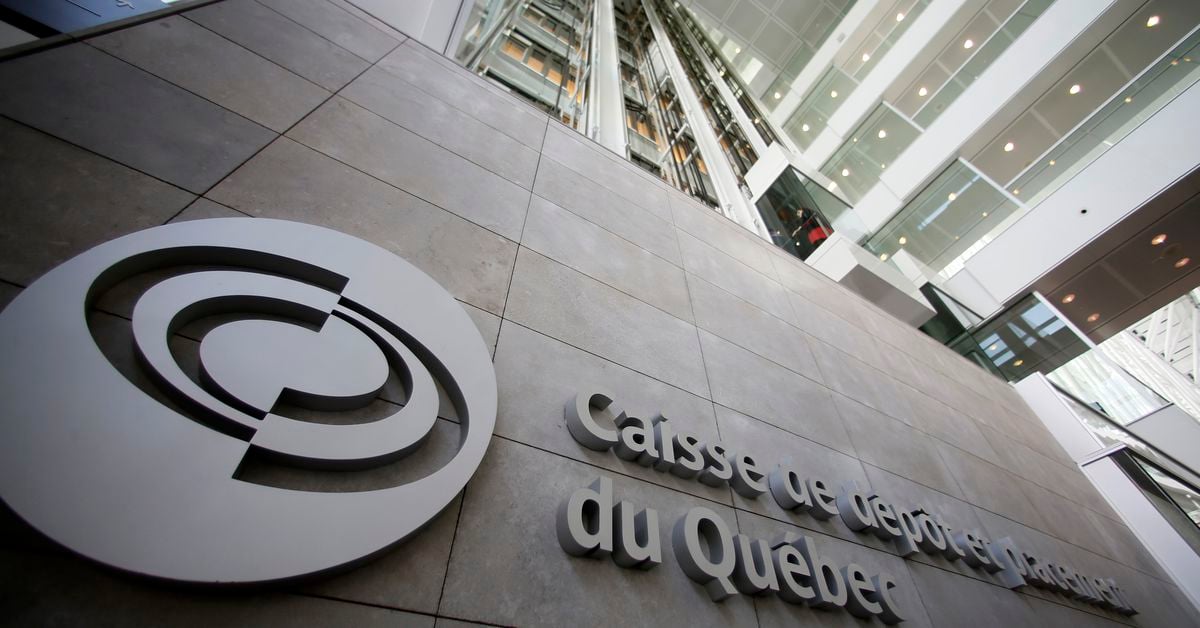Investment
Canadian pension fund CDPQ puts brakes on China investment, Financial Times reports – Reuters

June 1 (Reuters) – Canada’s second-largest pension fund Caisse de dépôt et placement du Québec (CDPQ) has stopped making private deals in China and will close its Shanghai office this year, the Financial Times reported on Thursday, citing people familiar with the matter.
The news follows a May 8 parliamentary hearing in which several Canadian pensions, including CDPQ, were asked about their relationship with China as bilateral political tensions have intensified.
CDPQ is leading its regional investment efforts from Singapore, the report said, noting that it still has business interests in China.
“We paused private investments for some time already — and have focused on liquid markets, which is the majority of our two per cent total portfolio exposure to China. We expect this trend to continue,” the newspaper quoted CDPQ as saying in a statement.
CDPQ confirmed the Shanghai office closure later this year, but declined to comment further.
The Financial Times in February reported that Singapore’s sovereign wealth fund GIC has reduced private investments in China.
During the May hearing, Michel Leduc, a senior manager at the Canada Pension Plan Investment Board (CPPIB), said China was an “important source” for its portfolio.
“We recognize that any investment in China needs to be handled with care, sophistication, and an acute understanding of the current political and geopolitical environment,” Leduc said.
A CPPIB spokesperson declined to comment further on Thursday.
In May, Canada’s C$211.1 billion ($157.87 billion) British Columbia Investment Management Corporation (BCI) said it had reduced exposure in China and Hong Kong by about 15% over two years and paused direct investments in China.
“Our current exposure in China is less than 5% of the overall BCI portfolio, the majority of which is through public markets and via indexed funds,” the asset manager said.
In April Canada’s third largest pension fund, Ontario Teachers’ Pension Plan (OTPP), also closed its China public equity investment team based in Hong Kong.
At the start of the year, OTPP said it was pausing future direct investments in private assets in China, citing geopolitical risk as a factor.
OTPP expects to name a new head of Asia-Pacific Private Capital Direct in the coming months to replace Raju Ruparelia who has left to pursue other opportunities, a spokesperson said by email.
($1 = 1.3372 Canadian dollars)
Our Standards: The Thomson Reuters Trust Principles.
Economy
S&P/TSX composite down more than 200 points, U.S. stock markets also fall
TORONTO – Canada’s main stock index was down more than 200 points in late-morning trading, weighed down by losses in the technology, base metal and energy sectors, while U.S. stock markets also fell.
The S&P/TSX composite index was down 239.24 points at 22,749.04.
In New York, the Dow Jones industrial average was down 312.36 points at 40,443.39. The S&P 500 index was down 80.94 points at 5,422.47, while the Nasdaq composite was down 380.17 points at 16,747.49.
The Canadian dollar traded for 73.80 cents US compared with 74.00 cents US on Thursday.
The October crude oil contract was down US$1.07 at US$68.08 per barrel and the October natural gas contract was up less than a penny at US$2.26 per mmBTU.
The December gold contract was down US$2.10 at US$2,541.00 an ounce and the December copper contract was down four cents at US$4.10 a pound.
This report by The Canadian Press was first published Sept. 6, 2024.
Companies in this story: (TSX:GSPTSE, TSX:CADUSD)
The Canadian Press. All rights reserved.
Economy
S&P/TSX composite up more than 150 points, U.S. stock markets also higher
TORONTO – Canada’s main stock index was up more than 150 points in late-morning trading, helped by strength in technology, financial and energy stocks, while U.S. stock markets also pushed higher.
The S&P/TSX composite index was up 171.41 points at 23,298.39.
In New York, the Dow Jones industrial average was up 278.37 points at 41,369.79. The S&P 500 index was up 38.17 points at 5,630.35, while the Nasdaq composite was up 177.15 points at 17,733.18.
The Canadian dollar traded for 74.19 cents US compared with 74.23 cents US on Wednesday.
The October crude oil contract was up US$1.75 at US$76.27 per barrel and the October natural gas contract was up less than a penny at US$2.10 per mmBTU.
The December gold contract was up US$18.70 at US$2,556.50 an ounce and the December copper contract was down less than a penny at US$4.22 a pound.
This report by The Canadian Press was first published Aug. 29, 2024.
Companies in this story: (TSX:GSPTSE, TSX:CADUSD)
The Canadian Press. All rights reserved.
Investment
Crypto Market Bloodbath Amid Broader Economic Concerns
-
News9 hours ago
B.C. to scrap consumer carbon tax if federal government drops legal requirement: Eby
-
News9 hours ago
A linebacker at West Virginia State is fatally shot on the eve of a game against his old school
-
Sports10 hours ago
Lawyer says Chinese doping case handled ‘reasonably’ but calls WADA’s lack of action “curious”
-
News20 hours ago
Reggie Bush was at his LA-area home when 3 male suspects attempted to break in
-
News11 hours ago
RCMP say 3 dead, suspects at large in targeted attack at home in Lloydminster, Sask.
-
Sports4 hours ago
Canada’s Marina Stakusic advances to quarterfinals at Guadalajara Open
-
News9 hours ago
Hall of Famer Joe Schmidt, who helped Detroit Lions win 2 NFL titles, dies at 92
-
News11 hours ago
Bad weather and boat modifications led to capsizing off Haida Gwaii, TSB says